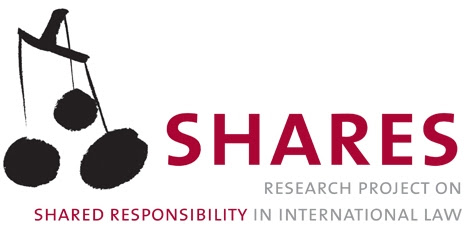Posted by: Irving Emma
In October 2012, the SHARES Blog carried a post that discussed a September Dutch Court decision concerning the on-going asylum situation at the ICC. Since then there are have been two important developments: the matter has been taken to the European Court of Human Rights (ECtHR) and the original Dutch decision has been overturned on appeal.
First, one of the detained witnesses sought to challenge his detention by bringing a claim against the host State of the ICC before the European Court of Human Rights (ECtHR). However, the application in Longa v The Netherlands was declared inadmissible on the basis that The Netherlands had no jurisdiction under Article 1 of the European Convention on Human Rights. While acknowledging that jurisdiction is primarily linked to territory, the ECtHR drew on previous case law dealing with the ICTY to decide that the mere presence of the ICC on Dutch territory is not sufficient to engage Dutch jurisdiction. It went on to dismiss the arguments made that the level of human rights protection at the ICC is deficient, and then rejected the notion that by accepting jurisdiction to hear the asylum claims the Netherlands had also accepted jurisdiction under the Convention. The Court held that there was no obligation on member States of the ECHR to allow a person to await to outcome of an asylum claim on its territory.
Armed with the Longa decision, the Dutch authorities filed an appeal to the earlier Dutch Court decision that would have compelled The Netherlands to take over control of the witnesses. The Appeals Court overturned the first instance decision on 18 December 2012. In this decision, the Dutch Appeals Court denied the lower court’s assertion that the witnesses were in a dead end detention situation, which as it had no end in sight, had therefore become illegal. It was held that just because the asylum procedure was lengthy, did not mean it was unending. The Court held that in any case, it was not for it to consider whether there was a conflict between the detention and Articles 5 and 13 ECHR: as the ECtHR had said in Longa, the Netherlands lacked jurisdiction under Article 1.
Once the ECtHR handed down its opinion on the situation of the detained witnesses, The Netherlands was offered an easy way out of the compromising position which the judge of the first instance court had placed it in. The Dutch authorities were no longer compelled to take over the witnesses, and suffer the precedential and political consequences that would entail. However that does not remove the question of whether the Longa decision was indeed a good one. On closer inspection, one might wonder whether the precedent the ECtHR relied on was not easily distinguishable. Having read the arguments of the applicant, one is struck by the fact that the ECtHR seems to have overlooked a number of relevant facts which may have led it to a different conclusion.
It is to be regretted that an unconvincing decision of the ECtHR has left the witnesses detained at the ICC unprotected. The September Dutch Court decision arguably took the better approach to the legal questions raised by the situation. Now the most pertinent question is to whom can the witnesses turn to seek relief? Not to the ICC, nor the DRC, and now not to the Netherlands. The result is an example of where shared obligations result in obligations for no one.
